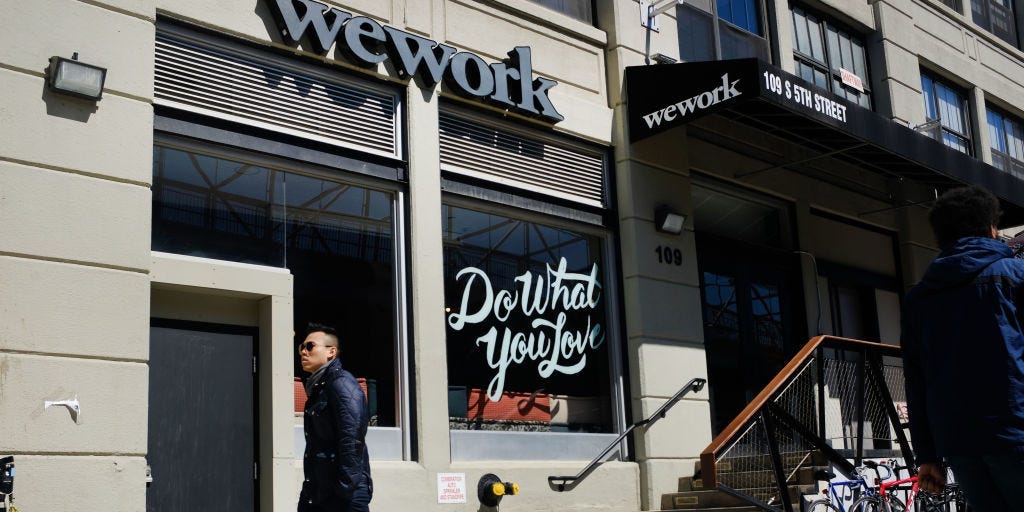
- WeWork plans to go public in October, two years after its IPO attempt ended in disaster.
- WeWork intends to secure a stock-market listing by merging with a blank-check company.
- The coworking giant will list its shares on the New York Stock Exchange under the "WE" symbol.
- Sign up here for our daily newsletter, 10 Things Before the Opening Bell.
WeWork is planning to join the stock market around October 21, more than two years after its IPO attempt ended in disaster.
The shared-workspace company agreed in March to go public via a merger with a special-purpose acquisition company (SPAC) named BowX Acquisition Corp. The two companies announced on Monday that BowX shareholders will meet virtually on October 19 to vote on the deal.
Upon completion of the transaction, WeWork expects to list its shares on the New York Stock Exchange under the "WE" ticker symbol.
The merger values the coworking giant at $9 billion including debt. That's less than a fifth of the private valuation of $47 billion it secured in 2019, following a $2 billion investment from SoftBank.
BowX shares closed 5% higher at about $11 on Monday. They hit a high of $14 in April after the blank-check firm, which counts former NBA star Shaquille O'Neal among its advisors, revealed the WeWork merger.
WeWork first filed for an IPO on August 14, 2019. But the coworking startup quickly faced intense investor and media scrutiny of its finances, its business model, and the controversial behavior of then CEO Adam Neumann.
The backlash eventually spurred WeWork to shelve its listing, and Neumann stepped down from his role on September 24, 2019. Majority shareholder SoftBank, which initially walked away from a deal to purchase $3 billion in stock, reached a settlement to bail out the business in February of this year.
A SPAC is a listed shell company created solely with the purpose of merging with or acquiring a private business to take it public. The vehicle offers a cheaper and speedier alternative to a traditional IPO. However, SPACs have come under fire by regulators who have moved to tighten investor protections against the investment vehicles.
A number of class-action lawsuits by aggrieved shareholders against the likes of Bill Ackman's Pershing Share Tontine Holdings, along with mounting regulatory scrutiny and subpar performance, have raised questions about whether SPACs are a sign of Wall Street excess.
The cooling of the SPAC market is evident from recent data that shows $75 billion was wiped off the value of SPAC deals in just six months.
Dit artikel is oorspronkelijk verschenen op z24.nl